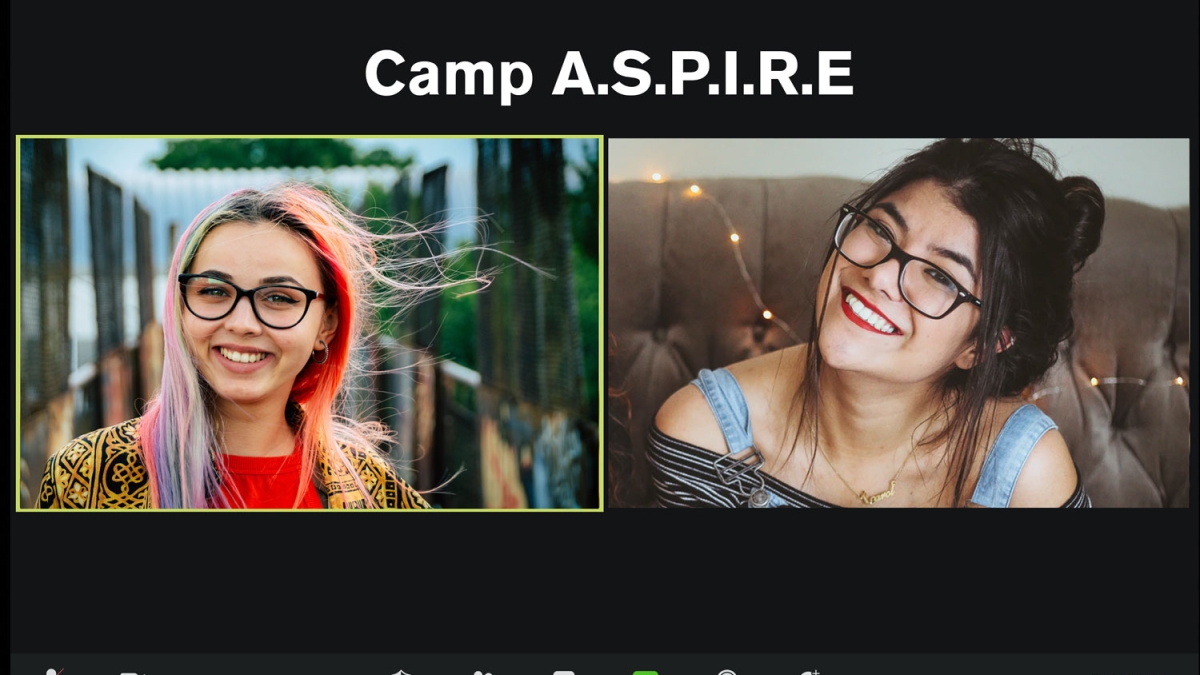Psychology clinic launches Camp ASPIRE

Psychology clinic launches Camp ASPIRE to lead online strength-based skills training program.
Since the start of the coronavirus pandemic, life has changed dramatically. Social distancing and the stay-at-home guidelines have been especially difficult for kids. In order to thrive this summer and beyond, children need to learn new coping skills, find alternative ways to socialize with friends and discover new ways to have fun.
This summer, graduate students working in Arizona State University's Clinical Psychology Center will offer a new online summer camp to help. ASU’s Skills Program Inspiring and Reinforcing Excellence, or Camp ASPIRE for short, will use fun activities, interactive games and evidence-based approaches to teach healthy coping, social and life skills that will position students for success now and later in life. The camp begins June 15 and runs through July 24.
“We know that this is a very challenging and unique time for many kids, so we decided to use our psychological expertise to help kids adapt, grow and have fun with others, while staying safe,” said Matt Meier, assistant clinical professor of psychology and associate director of clinical training.
The ASPIRE program is based on the Bridges Program, started by Nancy Gonzales, dean of natural sciences and professor of psychology. The Bridges program increases grades and confidence among teens while decreasing depressive and anxiety symptoms, discipline problems, school dropout and future alcohol use.
Camp ASPIRE provides a safe option for children and adolescents to socialize and make new friends, set positive goals for the summer and beyond, build on existing strengths and develop new coping skills such as managing negative emotions. Students can also earn prizes by actively participating and practicing new skills outside of camp.
“Our primary goal is to help kids have fun while learning new skills, but we are also hoping to help out parents. As a working parent myself, I need some structured activities for my kids this summer. I think this camp will be a big help for me and my children,” Meier said.
Camp ASPIRE will be held daily from 1 to 3 p.m. via Zoom. Groups run from Monday to Friday for one week or Monday, Wednesday and Friday for two weeks. Campers will be divided into two age groups: rising third–fifth graders and sixth-eight graders. Campers can attend a group individually or sign up with friends. The cost is $100 per student.
More Science and technology

ASU water polo player defends the goal — and our data
Marie Rudasics is the last line of defense.Six players advance across the pool with a single objective in mind: making sure that…

Diagnosing data corruption
You are in your doctor’s office for your annual physical and you notice the change. This year, your doctor no longer has your…
Large-scale study reveals true impact of ASU VR lab on science education
Students at Arizona State University love the Dreamscape Learn virtual reality biology experiences, and the intense engagement it…

